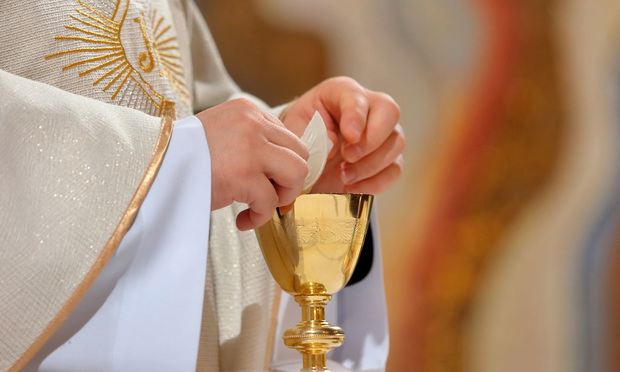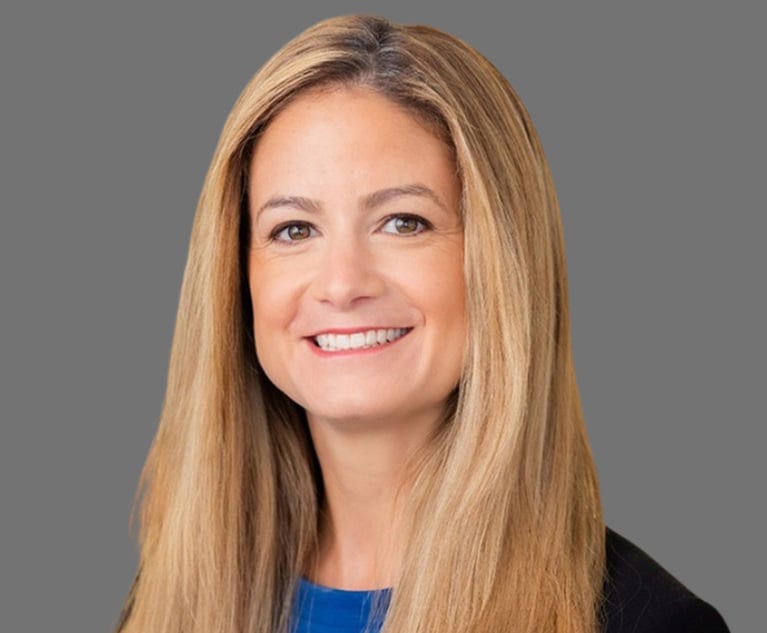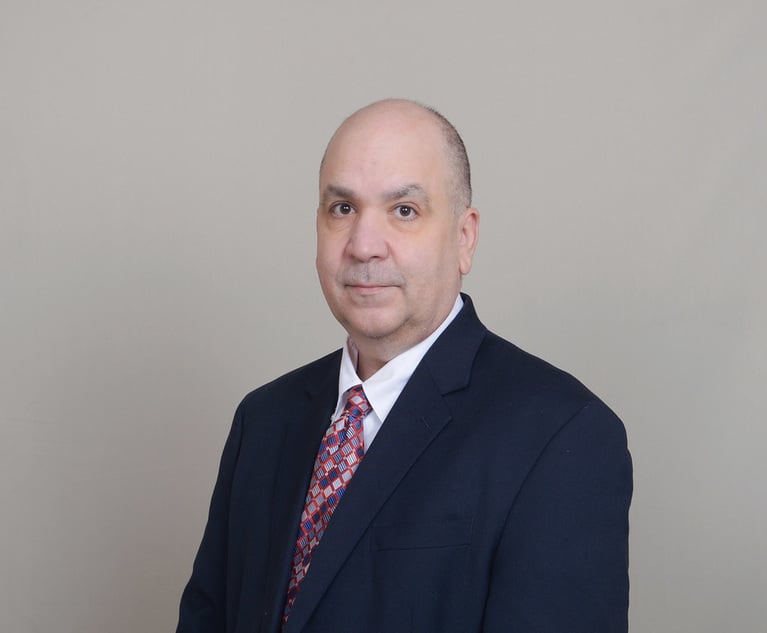Pa. Grand Jury Sex-Abuse Report to Remain Redacted, Justices Rule
The court cited the constitutional right to reputation and the separation of powers in determining that the names of the priests accused in the nearly 900-page grand jury report should not be made public.
December 03, 2018 at 05:24 PM
4 minute read
 Photo: Shutterstock
Photo: Shutterstock
The Pennsylvania Supreme Court on a 6-1 vote refused to make public the names of Catholic priests who were named in an explosive grand jury report but never charged criminally.
The court cited the constitutional right to reputation and the separation of powers in determining that the names of the priests accused in the nearly 900-page grand jury report should not be made public.
“In responding to the present constitutional challenge, our court may not usurp the province of the legislature by rewriting the act to add hearing and evidentiary requirements that grand juries, supervising judges, and parties must follow which do not comport with the act itself, as that is not our proper role under our constitutionally established tripartite form of governance,” Justice Debra Todd, who wrote the majority's 18-page opinion, said.
The grand jury report, which was released in August, exposed seven decades of abuse by clergy members, and said more than 1,000 children had been sexually abused in the state. The release sparked a national debate about accountability for child sexual abuse, and led several states and the U.S. Department of Justice to launch similar investigations.
Release of the report had initially been blocked over due process concerns, since those named in the report would be publicly seen as child abusers even though the report's accusations would never be properly adjudicated in court.
In July the Supreme Court allowed the report to be released publicly, but ordered that the names of those with due process challenges needed to be redacted—at least temporarily. The court's 31-page opinion announcing its decisions had said that, although the report could be released with the names of specific priests and church officials redacted, those challenging the report's release raised significant constitutional due process issues that the court needed to address.
Some practitioners also contended that the grand jury investigation process has become increasingly muddled over recent years, and they saw the Supreme Court's decision to consider the due process ramifications as an opportunity for the court to make substantive changes to the process.
Some of the recommended changes the parties made were allowing defendants to present rebuttal information in a hearing before the grand jury supervising judge, or allowing the grand jury to be re-impaneled to address the disputes.
The court, however, declined to implement any of the party's suggestions, saying that any changes would need to be made by the state General Assembly.
“We conclude that we may not judicially correct the Investigating Grand Jury Act (although … we may insure an inform process does not result in unconstitutional harm),” Todd said.
Saul Ewing Arnstein & Lehr attorneys Justin Danilewitz and Christopher Hall, who represented the unnamed people, said in a joint statement, “We're grateful for the court's reaffirmation of bedrock constitutional principals, and required procedural safe guards.”
In a statement to the press, Attorney General Josh Shapiro, whose office conducted the grand jury investigation, said the order “allows predator priests to remain in the shadows and permits the Church to continue concealing their identities.”
“While this order bars me from releasing the names of these 11 petitioners, nothing in this order prevents the dioceses from sharing the shielded names with their parishioners and the public,” Shapiro said. “I call on the bishops to do so immediately, consistent with their recent calls for transparency.”
This content has been archived. It is available through our partners, LexisNexis® and Bloomberg Law.
To view this content, please continue to their sites.
Not a Lexis Subscriber?
Subscribe Now
Not a Bloomberg Law Subscriber?
Subscribe Now
NOT FOR REPRINT
© 2025 ALM Global, LLC, All Rights Reserved. Request academic re-use from www.copyright.com. All other uses, submit a request to [email protected]. For more information visit Asset & Logo Licensing.
You Might Like
View All

JCPenney Customer's Slip-and-Fall From Bodily Substance Suit Best Left for a Jury to Decide, Judge Rules
4 minute read
People in the News—Jan. 9, 2025—Rawle & Henderson, Armstrong Teasdale
3 minute read
Trending Stories
- 1'It's Not Going to Be Pretty': PayPal, Capital One Face Novel Class Actions Over 'Poaching' Commissions Owed Influencers
- 211th Circuit Rejects Trump's Emergency Request as DOJ Prepares to Release Special Counsel's Final Report
- 3Supreme Court Takes Up Challenge to ACA Task Force
- 4'Tragedy of Unspeakable Proportions:' Could Edison, DWP, Face Lawsuits Over LA Wildfires?
- 5Meta Pulls Plug on DEI Programs
Who Got The Work
Michael G. Bongiorno, Andrew Scott Dulberg and Elizabeth E. Driscoll from Wilmer Cutler Pickering Hale and Dorr have stepped in to represent Symbotic Inc., an A.I.-enabled technology platform that focuses on increasing supply chain efficiency, and other defendants in a pending shareholder derivative lawsuit. The case, filed Oct. 2 in Massachusetts District Court by the Brown Law Firm on behalf of Stephen Austen, accuses certain officers and directors of misleading investors in regard to Symbotic's potential for margin growth by failing to disclose that the company was not equipped to timely deploy its systems or manage expenses through project delays. The case, assigned to U.S. District Judge Nathaniel M. Gorton, is 1:24-cv-12522, Austen v. Cohen et al.
Who Got The Work
Edmund Polubinski and Marie Killmond of Davis Polk & Wardwell have entered appearances for data platform software development company MongoDB and other defendants in a pending shareholder derivative lawsuit. The action, filed Oct. 7 in New York Southern District Court by the Brown Law Firm, accuses the company's directors and/or officers of falsely expressing confidence in the company’s restructuring of its sales incentive plan and downplaying the severity of decreases in its upfront commitments. The case is 1:24-cv-07594, Roy v. Ittycheria et al.
Who Got The Work
Amy O. Bruchs and Kurt F. Ellison of Michael Best & Friedrich have entered appearances for Epic Systems Corp. in a pending employment discrimination lawsuit. The suit was filed Sept. 7 in Wisconsin Western District Court by Levine Eisberner LLC and Siri & Glimstad on behalf of a project manager who claims that he was wrongfully terminated after applying for a religious exemption to the defendant's COVID-19 vaccine mandate. The case, assigned to U.S. Magistrate Judge Anita Marie Boor, is 3:24-cv-00630, Secker, Nathan v. Epic Systems Corporation.
Who Got The Work
David X. Sullivan, Thomas J. Finn and Gregory A. Hall from McCarter & English have entered appearances for Sunrun Installation Services in a pending civil rights lawsuit. The complaint was filed Sept. 4 in Connecticut District Court by attorney Robert M. Berke on behalf of former employee George Edward Steins, who was arrested and charged with employing an unregistered home improvement salesperson. The complaint alleges that had Sunrun informed the Connecticut Department of Consumer Protection that the plaintiff's employment had ended in 2017 and that he no longer held Sunrun's home improvement contractor license, he would not have been hit with charges, which were dismissed in May 2024. The case, assigned to U.S. District Judge Jeffrey A. Meyer, is 3:24-cv-01423, Steins v. Sunrun, Inc. et al.
Who Got The Work
Greenberg Traurig shareholder Joshua L. Raskin has entered an appearance for boohoo.com UK Ltd. in a pending patent infringement lawsuit. The suit, filed Sept. 3 in Texas Eastern District Court by Rozier Hardt McDonough on behalf of Alto Dynamics, asserts five patents related to an online shopping platform. The case, assigned to U.S. District Judge Rodney Gilstrap, is 2:24-cv-00719, Alto Dynamics, LLC v. boohoo.com UK Limited.
Featured Firms
Law Offices of Gary Martin Hays & Associates, P.C.
(470) 294-1674
Law Offices of Mark E. Salomone
(857) 444-6468
Smith & Hassler
(713) 739-1250





